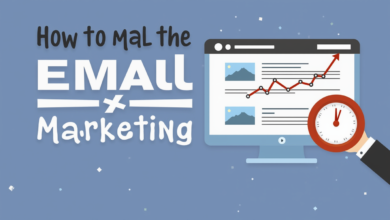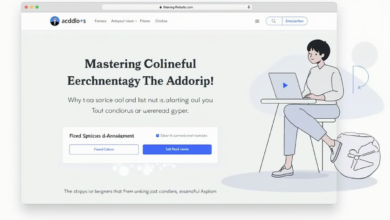How SEO and Content Marketing Work Together

Introduction
In today’s digital landscape, standing out online requires more than just having a website or creating content sporadically. If you’ve ever wondered how some brands manage to appear on the first page of search results, the answer lies in the powerful combination of SEO (Search Engine Optimization) and content marketing. When these two forces are combined, they don’t just attract attention—they create lasting connections, build trust, and lead to meaningful conversions.
This guide explores how SEO and content marketing work together to help you achieve your online goals. You’ll learn the strategies, the synergy between SEO and content, and actionable ways to leverage them for consistent results.
What is SEO?
Defining SEO
At its core, SEO is the art and science of making your content discoverable. When done right, SEO allows your website to appear in relevant search results on search engines like Google. It’s about aligning your website’s content, structure, and technical details with the factors that search engines look for when ranking sites.
Key Elements of SEO
- Keywords: The specific words and phrases that users type into search engines. Optimizing for relevant keywords allows your content to show up when people search for topics related to your industry.
- On-Page SEO: This involves optimizing individual pages on your site. It includes elements like title tags, headings, and meta descriptions, which make your content understandable to search engines.
- Technical SEO: This refers to optimizing the backend of your site, such as site speed, mobile-friendliness, and secure connections, which all play a role in ranking.
- Off-Page SEO: Building your website’s authority by getting backlinks from reputable sites. The more quality links pointing to your site, the more search engines trust your content.
Why SEO Matters
SEO isn’t just about ranking high in search results; it’s about reaching the right audience. By optimizing your content to be searchable and accessible, you’re ensuring that users can find you organically, which builds credibility and drives relevant traffic to your site.
What is Content Marketing?
Defining Content Marketing
Content marketing is the strategic creation and sharing of valuable content to attract and retain a defined audience. Unlike traditional advertising, which focuses on pushing a product, content marketing is about providing value, answering questions, and solving problems.
Types of Content
- Blog Posts: Great for sharing knowledge, addressing pain points, and providing industry insights.
- Videos: Highly engaging, perfect for tutorials, product demos, or storytelling.
- Social Media Posts: Short-form content that builds relationships and drives traffic.
- White Papers/Case Studies: In-depth resources that establish authority on complex topics.
Goals of Content Marketing
The main goal of content marketing is to build trust. By consistently providing value, you can foster relationships that lead to brand loyalty and conversions.
How SEO and Content Marketing Complement Each Other
Content as the Vehicle for Keywords
Your content is where SEO strategies come to life. By weaving relevant keywords naturally into your content, you make it easier for search engines to understand and rank your pages. This means researching keywords that align with your audience’s interests and creating content that matches their search intent.
For example, if you’re a skincare brand, writing a blog post titled “How to Choose the Right Sunscreen” allows you to target users searching for sunscreen tips, driving traffic to your site through a relevant, informative piece.
Improving User Experience
SEO isn’t just about keywords; it’s about making your site easy to navigate. Content marketing, with its focus on creating valuable information, complements this by keeping users engaged. If users find your content valuable and easy to consume, they’re likely to stay longer on your page, reducing bounce rates and improving rankings.
Link Building and Content Marketing
One of the best ways to build authority and earn backlinks is through high-quality content. When you publish original research, guides, or thought-provoking insights, other websites are more likely to link back to your content, boosting your SEO rankings. Content marketing essentially acts as a magnet, attracting links naturally.
Strategies for Integrating SEO and Content Marketing
Performing Keyword Research for Content Strategy
Researching keywords isn’t just about finding popular terms—it’s about understanding what your audience wants to know. By diving into your audience’s search patterns, you can identify keywords with high relevance and incorporate them into your content. Use tools like Google Keyword Planner or Ahrefs to find keywords that align with your brand’s goals and user intent.
Writing SEO-Optimized Content That Engages
Content that ranks well and engages readers strikes a balance between keyword optimization and readability. Start with an eye-catching headline that includes your primary keyword, break down your content into clear sections, and use engaging language. Remember, the more value your content provides, the more likely users are to stay on the page and return for more.
Measuring Success with Analytics
To see how well your SEO and content marketing efforts are working, track metrics like organic traffic, keyword rankings, and engagement rates. Set specific goals, like a 20% increase in organic traffic or higher click-through rates, and use analytics tools to measure your progress. Google Analytics, for instance, can provide insights into how users are finding and interacting with your content.
Examples of SEO and Content Marketing Working Together
Case Study 1: A fitness brand that used keyword-focused blog posts to attract users interested in wellness tips. By producing well-researched articles and optimizing them for keywords like “at-home workouts” and “healthy meal planning,” the brand increased its organic traffic by 40%.
Case Study 2: An online retailer optimized their product descriptions and created blog posts around seasonal trends, driving both SEO and conversions. As a result, their content not only improved their rankings but also guided users through the buying process effectively.
- Keyword Stuffing: Overloading your content with keywords can hurt readability and negatively impact rankings.
- Ignoring Content Quality for SEO: Focusing too much on keywords without delivering valuable content can drive users away.
- Lack of Consistent Content Creation: A well-maintained content calendar keeps your SEO strategy active and relevant. Without it, you risk losing momentum and search engine visibility.
FAQs about How SEO and Content Marketing Work Together
Why is it important to combine SEO with content marketing? Combining SEO with content marketing maximizes your visibility and attracts the right audience by making your content searchable and valuable.
How often should I update my content for SEO? Updating your content quarterly or as new information becomes available keeps it relevant and can improve rankings.
Can I rank without content marketing? While it’s possible, it’s challenging. Content marketing provides the material that SEO relies on, making them more effective together.
What types of content work best with SEO? Long-form articles, how-to guides, and research-backed content tend to rank well, as they provide in-depth information that search engines and readers value.
Conclusion
By combining the strengths of SEO and content marketing, you can create a digital presence that not only attracts visitors but keeps them coming back. While SEO ensures your content is discoverable, content marketing keeps users engaged and builds trust over time. Start integrating SEO and content marketing today to see a steady increase in traffic, engagement, and conversions



